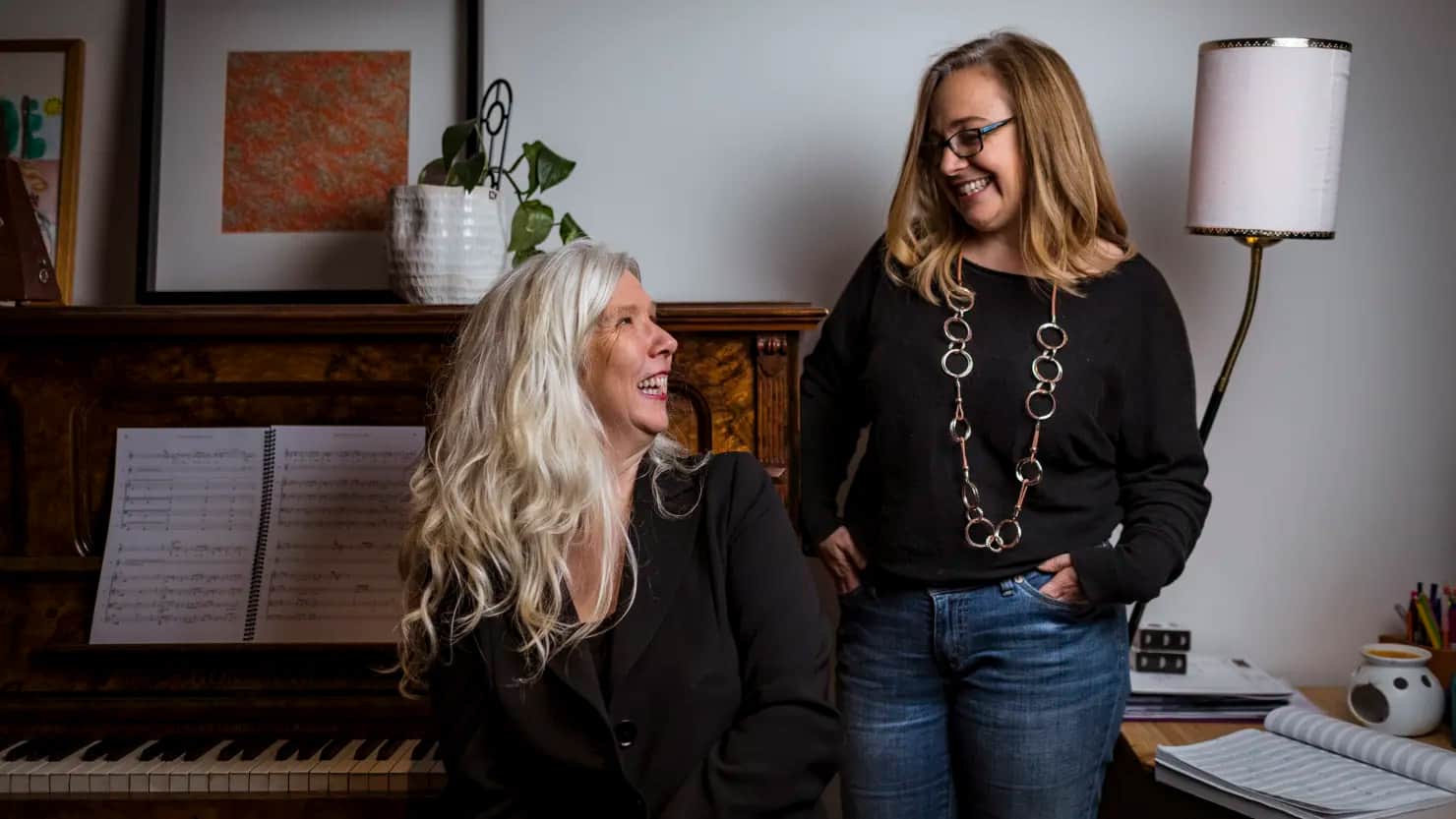Interview: The heartfelt humour and sorrow in an unopened letter, set to music
By NICK MILLER. Published July 2020 on The Age
As Katy Abbott was patiently reading through the huge pile of letters, a simple paragraph caught her eye: not particularly profound, but just perfect.
“I’m writing to you even though we’ve never met because it’s nice to receive letters. Letters are like a piece of someone in a moment where all they were thinking of was you … sometimes just a connection with someone can be a powerful change in itself.”
This excerpt, among many, will be part of a new work Abbott has written for Flinders Quartet, to be performed by live stream on July 23, 2020.
Hidden Thoughts II: Return to Sender, for a string quartet plus mezzo soprano and narrator, is inspired by – and features words and phrases from – the almost 2000 letters written by ordinary Australians to asylum seekers detained on Nauru in 2013. The letters were returned to barrister Julian Burnside unopened.
Abbott came up with the idea while working on the original Hidden Thoughts, composed around a text distilled from a confidential survey about women’s private thoughts and feelings.
“That piece came into existence because I was trying to find a way to marry my personal values and my musical strengths,” says Abbott. “These [asylum seeker letters], too, were thoughts written down but suppressed, they had been hidden.
“Music is a great way of being able to hear old things in a new way, or unpalatable things in a palatable way, hard things in a way that can be absorbed.”
She had a “big reaction” to the story about the unopened letters – “it stayed with me” – but it was a few years before she got up the courage to ask Burnside if she could read them.
He said yes straight away, and Abbott together with poet Maureen Johnson read through hundreds of the letters, looking for words, phrases, patterns and combinations that struck their muse.
It wasn’t an easy task: “I just felt really sad. The name on the front of the letter wasn’t the person reading it. It felt wrong. They would have probably taken so much warmth and encouragement from it.”

Katy Abbott with poet Maureen Johnson
A common pattern in the letters informed the piece’s 16 movements and their structure and tone: “People would greet the asylum seekers, explain why they were writing, who they were, where they lived and what they ate.
“There was a very big theme of food and geography in the letters.”
Some included photos, some drew pictures. Some were eloquent, told stories about their lives. Others were “perfunctory, almost clinical”. Some were funny, deliberately or accidentally. Near the end, they would talk about their outrage and shame at the situation. Then they would sign off.
Abbott says the letters and the music “exacerbate the distance between us”. The asylum seekers felt “so far away and I was trying to capture that experience in the piece”, a feeling that may be multiplied by the online, physically distanced premiere.
But she didn’t want to leave everyone crying – or to focus on the trivial and miss the underlying story behind the letters. At the end, the audience will be invited to join in for a few bars, to add their voices and break the silence imposed by the returning of the letters, to bridge that distance.
Does she hope the asylum seekers the letters were sent to will hear the piece?
“That would be the best. I don’t dare to hope that. But yes, I hope.”


